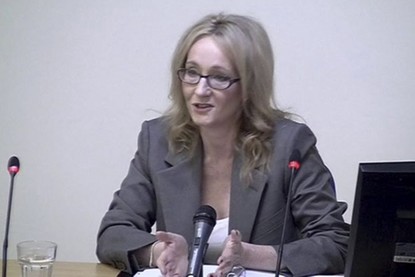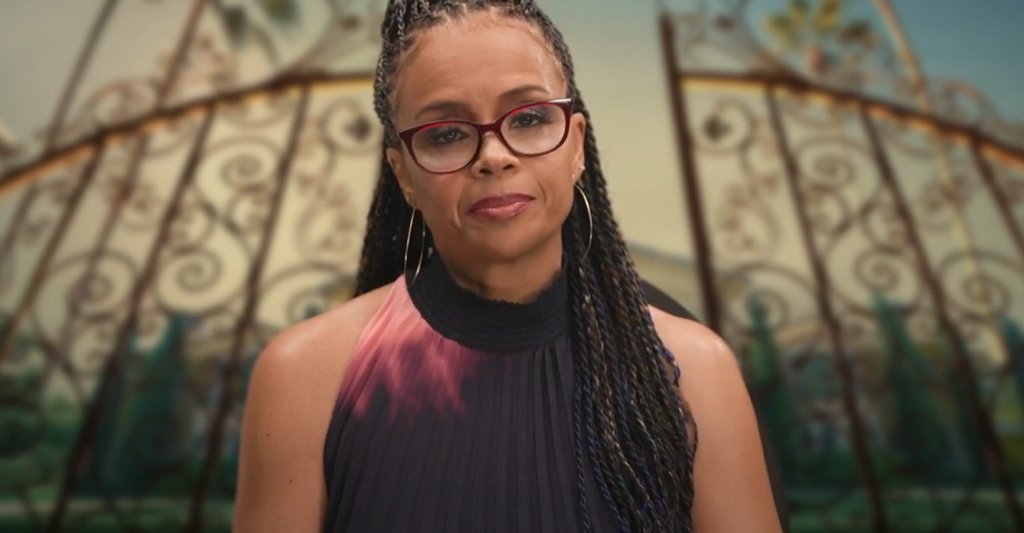Britain has been riveted by the Leveson Inquiry, a legal body set up to investigate illegal information-gathering techniques used by the tabloid press — such as phone-hacking, data interception, and photographer harassment — in their quest to print salacious stories. Those giving evidence before Lord Justice Leveson include members of the public whose lives have been tainted by the tabloids, but the focus is on the celebrities who have come forward with horror stories, such as Hugh Grant, Jude Law, JK Rowling, and Charlotte Church. While all the testimony has been appalling, it is the testimony of the women that has revealed a particularly predatory sort of intrusion, often sexual in nature. It’s not only the testimony that’s been revelatory, but some of the public response to it. In addition to those who are disgusted by the tabloids’ obsessive digging into famous people’s private lives, others have been sharply critical of the celebrities, especially the women. The attitude can be summed up thusly: You chose a career that had the potential to make you famous. You became famous. You deserve this intrusion.
Presumably, they feel no irony in telling a woman who’s been invaded that she “deserves it.”
What famous women endure at the hands of the tabloid press has always been burdensome, though it is now far worse. Back in the Hollywood “glory days” of gossip mavens Hedda Hopper and Louella Parsons, actresses were either given the kind of adoration they enjoyed from fans or, if they were deemed to either not want to play along with the press or behaving in any way that fell outside the imposed code of morality established for those in the public eye, they were eviscerated. The idea was either to make their public love them more or to scold them. Careers could be ended if you got in either Hopper or Parsons crosshairs. It was the rare actress who could keep above the fray. But at least there were lines it was understood no one was to cross. Those lines are long gone.
While the invasion of privacy Hugh Grant and other men described was appalling, it didn’t have the sexually predatory and objectifying nature of the treatment women have endured. Singer Charlotte Church described struggling with photographers who attempted to take pictures up her skirt. When Church was still underage, The Sun posted a “countdown” clock, marking when she would turn 16 — the age of consent in Britain. At 21, actress Sienna Miller was chased down the street late at night by a group of photographers when she was trying to get home. JK Rowling found a letter from a “journalist” inside her small daughter’s bag when the girl came home from school and was harassed even when out with her children. Again and again on the Twitter stream from the inquiry people commented that they were protesting too much. Rowling, though noted by many for her intelligent forthright speaking, was criticized by some who said she came across like “a real bitch.” As with most articulate women, if they are not seen as commodifying themselves appropriately, they are dismissed using the most standard trope of all.
Several women’s organizations have testified as to the negative and dangerous media portrayals of women in general. Whether this will lead to any changes remains to be seen, but there can no longer be any doubt that the media treatment of women has fostered a culture wherein famous women are considered property. The expectation is that, in return for the adulation they receive, they are stripped of their personhood and rendered into clay for the collective Pygmalion. And those who rail against this treatment are regarded with disgust.
Simone de Beavoir’s observation is still spot-on: “Man is defined as a human being and a woman as a female — whenever she behaves as a human being she is said to imitate the male.” Writers create characters and actresses embody them, but that doesn’t mean they relinquish their personhood when they become noticed for their work. It seems particularly ironic that there are those in the US fighting for the opportunity to legally refer to a fetus as a “person,” while the objectification of adult women rages on unabated. Even an object of admiration is still an object.
It is hoped that the outcome of the inquiry will be the creation of real regulations and safeguards. What won’t be said, but what is painfully clear, is that women need to have more control of our media presentation. We can’t control our narrative without our voice.
________________________________________________
Sarah Jane Stratford is an author whose novels include The Midnight Guardian and The Moonlight Brigade. Her work has appeared in The Guardian and Guernica Magazine. Twitter: @stratfordsj







